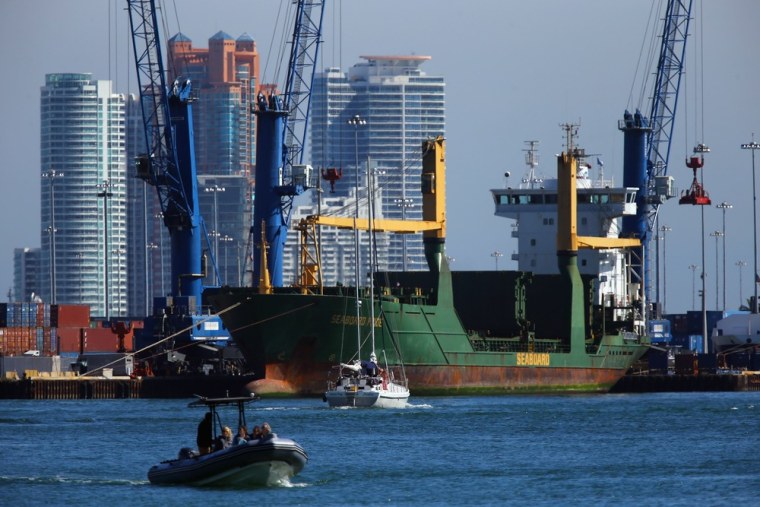A strike that could have crippled 15 major ports on the East Coast and the Gulf and put a crimp in the nation's commerce has been avoided after dock workers, port operators and shippers agreed to a deal that extends the workers' contract, a federal mediator said Friday.
The parties settled on a 30-day extension of the contract after a meeting Thursday with Federal Mediation and Conciliation Service Director George H. Cohen, the FMCS said in a statement.
The parties had faced a Saturday deadline for resolving the labor dispute. The International Longshoremen's Association, which represented the dock workers, had threatened to strike a day later.
The strike would have shut down major ports, including the port of New York and New Jersey, the largest on the East Coast and the second-largest port in the U.S. to handle manufactured goods from China.
Earlier Friday, The White House had urged the parties to resolve their differences. The dispute centered on a cap to payments to dock workers based on the weight of the container cargo, known as "container royalties."
The new contract does not eliminate the royalty payments, according to Benny Holland, an executive vice president for the ILA.
"The royalty will stay intact. We have worked out a formula for it," he said in an interview.
Established in 1960, the royalty payments to ILA workers are based on the tons of container cargo that move through a port. That tonnage has risen from 50 million tons in 1996 to 110 million last year, according to the alliance. Total payments last year were $211 million, according to the USMX, or an average of $15,500 per worker.
The original idea was to protect longshoremen from wage losses expected as a result of "containerization," in which more and more goods are packed in the now-familiar 20- and 40-foot long boxes. Those take less manpower to off-load than the less-standardized containers they replaced.
Both sides also fought over the guaranteed eight-hour workday in the current contract and the seven-man "lashing gang." Lashing crews, or gangs, secure the cargo containers to the vessel using metal lashing rods to keep them from moving while the vessel is at sea. The maritime alliance wanted to eliminate each.
“The container royalty payment issue has been agreed upon in principle by the parties, subject to achieving an overall collective bargaining agreement. The parties have further agreed to an additional extension of 30 days (i.e., until midnight, January 28, 2013) during which time the parties shall negotiate all remaining outstanding Master Agreement issues, including those relating to New York and New Jersey," the federal mediator's statement said.
CNBC and Reuters contributed to this report.
